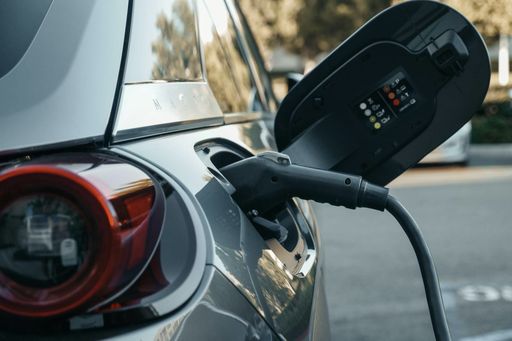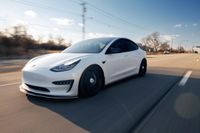American Drivers Embrace Electric SUVs: Breaking Down Barriers to Adoption
Auto companies are meeting the demand for electric SUVs in the US market, providing drivers with size, luxury, and performance. This shift in the auto industry could address major barriers to EV adoption such as price, range, and variety.

Meeting the Demand for Electric SUVs
One of the main reasons American drivers have been hesitant to switch to electric vehicles (EVs) is the lack of comparable electric SUV models. US drivers want EVs that offer the size, performance, and style of their gas-guzzling SUVs, but options have been limited. High initial costs and concerns about limited range have been major barriers. However, this year, auto companies are changing the game.
According to Felipe Smolka, EY partner and American automotive eMobility leader, auto companies are preparing to release dozens of all-electric SUVs in the US market. These vehicles range from luxurious three-row SUVs to more affordable mini-SUVs. This variety of new EV models could address the major barriers to EV adoption, including price, range, and variety.
New Players Embrace Electric SUV Market
At the recent Consumer Electronics Show, newcomer VinFast unveiled its mini VF3 SUV. With an expected price below $20,000, this affordable EV could become one of the most budget-friendly options in the US. Tesla is also entering the market with its Model Y, a compact SUV starting at $44,000.
Chinese auto company Nio is planning to enter the US market by 2025 with its luxury six-seater SUV, Nio ES8. Priced around $70,000, this EV comes packed with premium features such as massage seats, fast charging, and an integrated AI assistant. China's advantage in the EV market, with government subsidies and access to a large lithium supply, allows for lower-priced models, including SUVs.
Prioritizing Electric SUVs in the US
Some American EV manufacturers, such as Rivian, Lucid Motors, and Fisker, have prioritized the production of all-electric SUVs. Henrik Fisker, CEO of Fisker Inc., believes consumers are drawn to these new companies because of their appealing SUV designs. Fisker showcased its Ocean model, a five-seater SUV, and announced a subcompact SUV named Pear for 2025 with a starting price of $29,900.
Moreover, car makers have responded to consumer demands for greater battery range. Tesla's best-selling Model X offers a range of 326 miles. Other newer electric SUVs from major automakers also provide long-range capabilities. However, industry experts suggest that the desire for greater range is more driven by short-term anxiety about charging infrastructure rather than an actual need.


